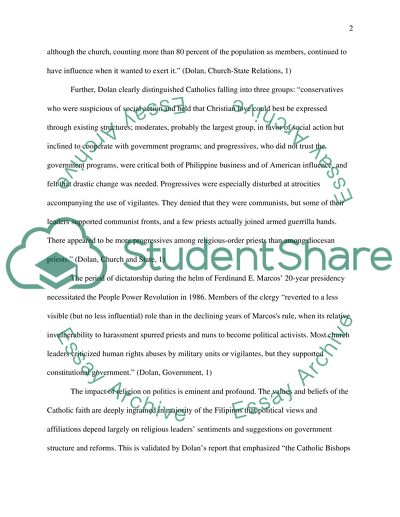Cite this document
(“Impact of Religion, Faith, or the Dominant Ethical System on Politics Essay - 1”, n.d.)
Retrieved from https://studentshare.org/politics/1561788-world-politics
Retrieved from https://studentshare.org/politics/1561788-world-politics
(Impact of Religion, Faith, or the Dominant Ethical System on Politics Essay - 1)
https://studentshare.org/politics/1561788-world-politics.
https://studentshare.org/politics/1561788-world-politics.
“Impact of Religion, Faith, or the Dominant Ethical System on Politics Essay - 1”, n.d. https://studentshare.org/politics/1561788-world-politics.


